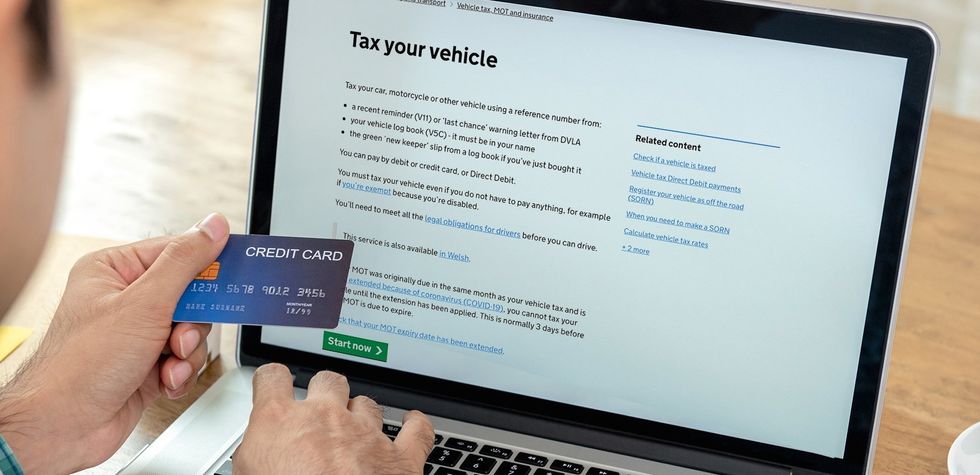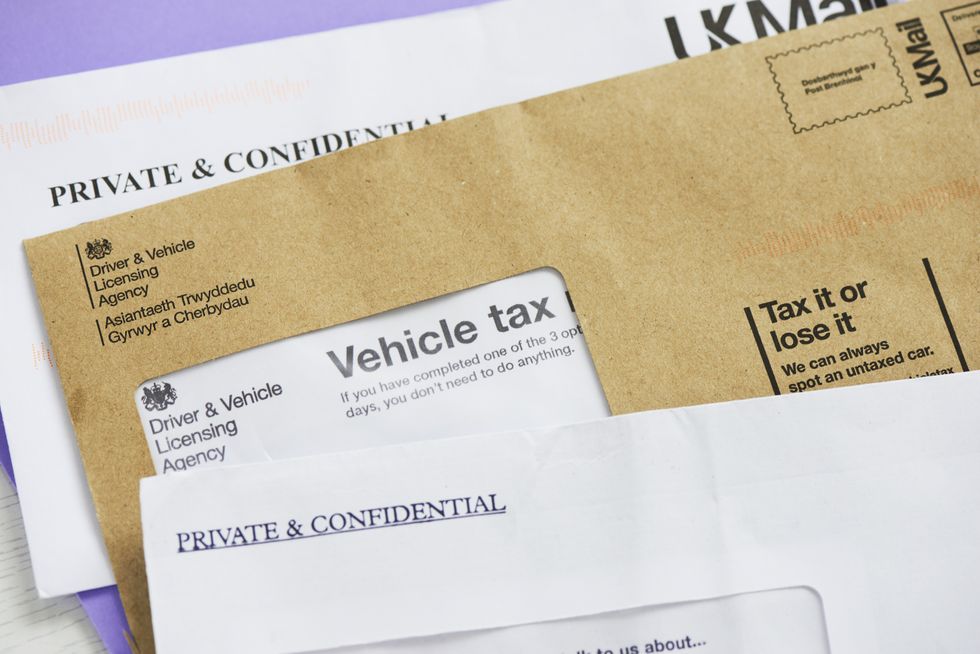Motorists can set vehicle tax reminders through the Driver and vehicle account
PA/GETTY
Drivers could be eligible for tax refunds
Don't Miss
Most Read
Trending on GB News
The DVLA has issued an urgent call to all motorists to report changes in vehicle ownership which could lead to potential tax refunds and improved processing times.
The call to action by the agency aims to streamline administrative procedures and ensure accurate records.
Motorists can now inform the DVLA when they no longer own a vehicle or have purchased one, either as a registered keeper or motor trader. The agency offers both online and postal methods for reporting these changes.
By notifying the DVLA, vehicle owners can benefit from automatic tax cancellations and potential refunds for any full months of remaining vehicle tax.
Do you have a story you'd like to share? Get in touch by emailingmotoring@gbnews.uk

Drivers can get refunds on car tax payments
X/DVLAThe DVLA stated in a recent announcement: “Calling all motor traders! Tell DVLA online when you've bought or sold a vehicle and your customers will get their documents quicker – sorted."
To inform the DVLA when no longer owning a vehicle, motorists can use the online service available from 7am to 7pm.
This allows them to change the registered keeper and send the logbook to the new owner. For those without a logbook, a written notification to DVLA is required. This must include personal details, vehicle information, and the exact date of sale.
After notifying the DVLA, the agency can then cancel the vehicle tax and issue a refund for any full remaining months. But the DVLA noted that this process cannot be used if the logbook has already been sent by post.
Motor traders are particularly encouraged to use the online service, as it rapidly speeds up processing for their customers.
The refund process is straightforward for motorists who cancel their vehicle tax. Refunds are automatically issued for any full months of remaining tax, calculated from the date DVLA receives the information. The refund is sent as a cheque to the name and address on the vehicle logbook.
However, certain fees are non-refundable, including credit card fees and surcharges on some direct debit or single six-month payments.
For newly registered vehicles, the refund amount is based on the lower of the first tax payment or the subsequent rate.
If a refund cheque doesn't arrive within eight weeks, motorists should contact DVLA. Similarly, if a cheque is issued with the wrong name, it should be returned to DVLA with the correct details provided.
Motorists must notify DVLA in various scenarios beyond selling a vehicle. These include taking the vehicle off the road (known as a Statutory Off Road Notification or SORN), having it written off by insurance, scrapped at a vehicle scrapyard, or stolen.
Additionally, notification is required if the vehicle is exported out of the UK or registered as exempt from vehicle tax.
It's crucial to inform DVLA promptly in these situations, as there is no alternative method to cancel vehicle tax. This ensures accurate records and prevents unnecessary charges.
LATEST DEVELOPMENTS:
 Car tax hikes are expected to come into force in April next yearGETTY
Car tax hikes are expected to come into force in April next yearGETTYFor stolen vehicles, owners must apply for a tax refund separately. In cases of vehicle export or tax-exempt status, timely reporting helps maintain compliance with regulations.
The DVLA's call for prompt reporting of vehicle ownership changes brings multiple benefits to motorists and the agency alike. By informing DVLA quickly, sellers can receive tax refunds sooner, whilst new owners get their documents faster.
This streamlined process helps maintain accurate vehicle records, crucial for road safety and taxation purposes. It also reduces administrative burdens on both the DVLA and motorists.








